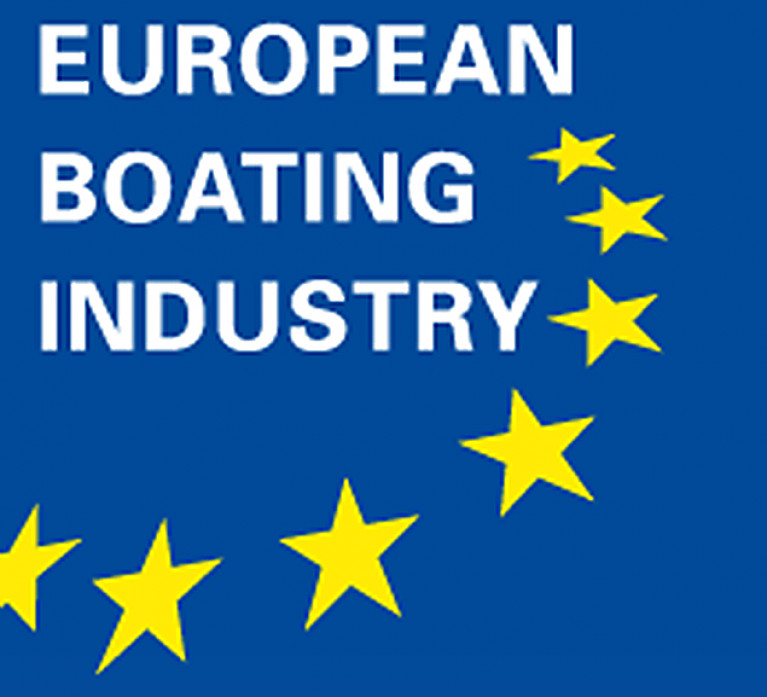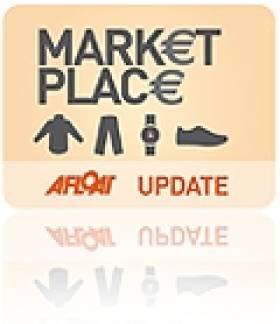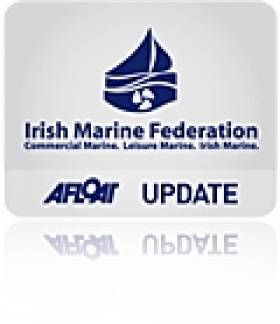Displaying items by tag: European Boating Industry
Representatives from the European Commission, the European Boating Industry (EBI), and the Belgian EU Presidency came together for a conference on Tuesday, March 19th, at the Egmont Palace in Brussels to discuss the pressing issue of end-of-life recreational boats.
The Irish Marine Federation is a member of the European Boating Industry.
The conference brought together a variety of stakeholders, including industry representatives, policymakers, and related sectors, to underscore the urgency of cooperation in addressing this critical issue.
Opening speeches were given by Georges Gilkinet, Belgian Deputy Prime Minister and Minister of Mobility, Delilah Al Khudhairy, Director for Maritime Policy and the Blue Economy at the European Commission, and Robert Marx, President of EBI. The conference highlighted the importance of continued joint efforts between the private and public sectors to drive meaningful change.
Various perspectives were presented, highlighting the complexity of the issue, including financial and legal frameworks, technical advancements in recycling, and environmental impact assessment.
The conference recognised the role of innovation in addressing environmental challenges in the boating industry, as presented in the EU Roadmap on the implementation of the circular economy for end-of-life recreational boats. Ongoing research and innovation in composite materials and life cycle analysis will play a vital role in supporting a circular approach to boat-building and reducing its environmental footprint.
Robert Marx, President of EBI, emphasised the need for concrete action: "As we move forward, it is imperative that the momentum generated by this conference translates into concrete action. The implementation of the EU Roadmap must be the key next step after the approaching EU elections. Industry is ready, the technology is ready and we now need to set up the regulatory framework to make it happen. We are delighted to have the support of the European Commission and Belgian Council Presidency in this endeavour".
Overall, the conference marked a pivotal moment in addressing the pressing issue of end-of-life recreational boats, highlighting the readiness of technology and the willingness of industry to collaborate in creating a robust European regulatory framework.
Recreational Boating Sector Joins Over 100 Organisations Urging EU & US to Lift Retaliatory Tariffs
More than 100 European and American associations have issued a joint statement ahead of the EU-US Summit in Brussels next Tuesday 15 June, calling for the removal of tariffs on sectors unrelated to the ongoing transatlantic trade disputes.
For recreational boating, this relates to the retaliatory tariffs put in place by the EU after the US placed tariffs on EU steel and aluminium.
The European Boating Industry (EBI) and its US counterpart the National Marine Manufacturers Association (NMMA) have now joined a coalition that comprises 113 organisations — which range from agricultural products to consumer goods and recreational boating.
The move is also part of a wider cooperation by the associations on the trade dispute which includes the International Council of Marine Industry Associations (ICOMIA).
Their full statement can be downloaded below.
The first-ever study by European Boating Industry, Bundesverband Wassersportwirtschaft e.V., and boot Düsseldorf offers a unique insight into how the recreational boating industry in Europe fared in 2020 given the COVID pandemic. Presented at the International Breakfast Meeting on 20 April and now published, the study shows a mixed impact on the industry in 2020 with a positive outlook for the next years and some clear trends.
The study, led by two graduates of the Jade University Wilhelmshaven in Germany (Amelie Cesar & Natascha Zwenke) is the result of a unique cooperation between European Boating Industry, Bundesverband Wassersportwirtschaft e.V. and boot Düsseldorf. The study analyses the impact of the pandemic in 2020 on a number of key indicators and the outlook of the industry. It is based on the responses of companies within EBI’s membership that were surveyed in late 2020 following the end of the summer season, as well as interviews with experts among EBI’s full members.
The study shows a varied picture of the impact of COVID-19 and the various restrictions at national level for 2020, with some countries and some sub-sectors more impacted than others. Some markets however also did exceptionally well with revenues increasing. A clear picture emerges for 2021 and beyond, showing a positive outlook for companies. It also demonstrates the need for political support measures at national and European level.
Some key messages from the study:
- Small and medium-sized enterprises (SMEs): Over 96 % of companies that responded were SMEs, and almost half were micro-SMEs.
- Revenue: A third of companies indicated an increase while more than half recorded a drop in revenues. Companies with their main activity in tourism and production have been hit harder than companies in the distribution sector and service sectors.
- Employment: 23 % of companies had to lay off employees while 22% increased employment. The impact on employment may be more significant in the long-term.
- Future trends: The interest in boating is seen as increasing in the short- and the long-term. Companies increasingly focus on digitalisation and partly also on environmental sustainability. Investments had to however be postponed in 2020 given the pandemic.
- Government support: In all countries, governments supported companies in difficulty. Government support however remains necessary on a national and European level with a focus on financial support, effective legislation, and promotion.
- Industry outlook: The outlook for businesses in the boating industry is perceived as positive for 2021 with only 23% seeing it as poor.
- The full results of the study and analysis are available for members of EBI, BVWW and the network of boot Düsseldorf.
Commenting on the study Petros Michelidakis, boot Düsseldorf Project Director, said: “The result of this study is also essential for the further development of boot Düsseldorf. The international boating industry and the entire water sports have enormous potential. We will use this for boot Düsseldorf and continue to offer the water sports community a show that is unique worldwide and will be the reflection of the market. I am very pleased that we will already prove this at boot 2022, because the industry's interest in taking part and present to its audience again is very high.”
Karsten Stahlhut, Managing Director of BVWW commented “The study shows the great potential of the water sports industry. Together, we should do our utmost to always remain future-proof and innovative, also with regard to digitalisation and the upcoming technical transformation”
Philip Easthill, EBI Secretary-General, stated: “It is encouraging to see that our industry has been able to hold up well in 2020 and companies are positive for the future. This shows the resilience of our industry and hard work over the last year. Our industry is clearly very well positioned to take advantage of new consumer trends and benefit in the short- and long-term. Given the impact that the pandemic has nevertheless had, the study clearly shows the importance of effective policy at all levels of government to support recovery and help the industry return to growth in the next years.”
boot Düsseldorf & European Boating Industry Exchange Latest Market Boat Trends in Online Focus
boot Düsseldorf and European Boating Industry announce that the sixth edition of the annual International Breakfast Meeting will move to a digital format. On 20 April, high-level panellists from business and politics will discuss the impacts of the COVID-19 crisis on the recreational boating industry, how the industry can recover and new trends and opportunities.
Every year, the International Breakfast Meeting (IBM) held at boot Düsseldorf offers trade visitors, industry, and journalists the opportunity to exchange information on the latest market trends, regulations, and innovation, as well as to develop new contacts and networks.
This year, the co-organisers of the annual International Breakfast Meeting, boot Düsseldorf and European Boating Industry (EBI) took the decision to move to a digital format despite the cancellation of the trade show. The aim is to continue to provide market intelligence and connect business and politics at a crucial time for the industry. The sixth edition of the IBM will be under the theme of “A Corona reboot of tourism and recreation – What future for boating?”. It will take place on 20 April from 10:00 – 12:00 (CEST).
At the centre of the 2021 IBM will be the presentation of an EBI study on the impact of COVID-19 on the industry and outlook of the industry, which presents new industry data based on a survey of companies. Presentations on new trends in travel and tourism will follow alongside a discussion of the future EU tourism strategy and how to build momentum for boating in 2021 and beyond.
Confirmed as speakers are Petros Michelidakis (Project Director boot Düsseldorf), Amelie Cesar and Natascha Zwenke (Study leaders, Jade University Wilhelmshaven), Lyublena Dimova (Research Manager, European Travel Commission), Ismail Ertug (Member of the European Parliament) and Gianguido Girotti (Deputy CEO Brand & Product Strategy, Groupe Beneteau).
Announcing the 2021 IBM, Petros Michelidakis said: “The International Breakfast Meeting is the leading forum to discuss the industry’s most pressing issues. While boot Düsseldorf 2021 has had to be cancelled, we are delighted to host experts and policy-makers for a highly relevant exchange in a digital format. It promises to be insightful as we look back at 2020 and take a glance into the future for the boating and water sports industry. We look forward to welcoming the industry back to boot Düsseldorf 2022 with an IBM taking place in-person.”
Philip Easthill (Secretary-General, EBI) commented: “We are delighted to again co-organise IBM with our partner boot Düsseldorf, who we thank for their support to industry in these difficult times. We are witnessing the rapid development of new consumer trends. IBM will be an anchor point to look at these trends and opportunities that will define 2021 and beyond, as well as the EU’s future approach to tourism and the blue economy.
European Boating Industry (EBI) joined a strategic dialogue with EU Commissioner for Industry and Internal Market Thierry Breton on the recovery of the maritime sector following COVID-19. EBI presented the impacts of COVID-19 on the recreational boating industry and the opportunities to lift the sector from the crisis through measures at EU level. The other maritime sector stakeholders represented were shipbuilders, maritime equipment producers and ship owners.
The meeting allowed EBI to present the recreational boating industry at the highest political level of the European Commission. EBI raised the strategic importance of Europe as the number one region for the production and export of recreational boats and for nautical tourism. The sector offers a success story of European manufacturing with several industrial champions and a vibrant tourism sector. The entire industry consists of 32,000 companies of which the majority are SMEs and employs 280,000 people.
The meeting came one day after the European Commission presented its long-awaited proposal for the EU recovery plan with an unprecedented €750 billion recovery fund. It identified the tourism and maritime mobility sector as key areas for investment by the EU and Member States in the recovery period. During the meeting, Commissioner Breton highlighted the importance of the maritime industry ecosystem for Europe’s economy and recovery after the COVID-19 crisis. In his view, the industry has a crucial role to play for a digital and green recovery where public investment will play a substantial role.
EBI echoed the calls first made in the joint policy paper of 20 boating industry associations in Europe in mid-April. This consists of a coordinated opening of borders for travellers, navigation, supply chains and tourism in the short-term under strict health and safety conditions. This needs to be followed up by stimulating consumer demand through promotion of European tourism. Furthermore, the EU’s Recovery Plan should play a strong role in investment and focus on the environmental and digital transformation of the boating industry.
EBI Secretary-General Philip Easthill, who represented EBI during the meeting, commented “Being a part of the dialogue with Commissioner Breton shows the strategic importance of our industry for the maritime and tourism ecosystems. COVID-19 will have a substantial impact on our industry, and it is crucial that this is taken into account for the recovery plans of the EU and Member States. Investment in the promotion of European nautical tourism and a green and digital transition of the boating industry is needed. We look forward to continuing the dialogue with Commissioner Breton.”
The other participants in the meeting represented ship builders (SEA Europe, Fincantieri, Meyer Werft), maritime equipment manufacturers (ECA Group) and ship owners (Vroon Group).
Buying From Outside Europe? Make Sure Your Boat is EU Compliant
#BUYING A BOAT - Are you getting value for money when you buy a boat from outside the European Union? Leisure marine website BoatingBusiness takes a look at your options and responsibilities when it comes to importing from abroad.
"Many people underestimate the responsibilities of the importers, distributors and even buyers when they act as importers in Europe," they report, noting that all companies and individuals in the import chain must ensure that any boat coming into the EU complies with the necessary technical, ennvironmental and safety requirements for recreational craft.
To this end, the European Boating Industry has published a handy checklist that allows individual importers and distribution businesses alike to determine if their non-EU boat complies with EU regulations.
Items on the checklust include the boat builder's plate, which must include a CE marking. Boats must also carry a 14-character Craft Identification Number (CIM), proper engine identification (including a unique engine ID number), an owner's manual and a written Declaration of Conformity.
For vessels from outside the EU or new boat builds designed for non-EU markets, those putting them on the marketplace are responsible for arranging a post-construction conformity assessment to ensure compliance with EU rules.
Faulire to comply with these rules could see your boat suspended from circulation or even invalidate your insurance, so it's well worth putting in the effort!
The European Boating Instustry checklist is available as a PDF to read or download HERE.
The Irish Marine Federation's Steve Conlon is to meet with Ms. Mirna Cieniewicz, Secretary General of The European Boating Industry, to discuss the implications of the changes recently announced by EU Vice President Antonio Tajani.
Vice President Tajani announced changes to the EU Recreational Craft Directive, a move towards a common European Union Boat license and a new EU Tourism Policy.
The RCD has been unchanged since its adoption, however, there has been a wide divergence in its interpretation in different member states. The new RDC intends to remove ambiguities and provide clarity. It will also deal with environmental issues. It is expected that the full text of the new RCD will be available in November.
Vice President Tajani revealed that the Commission was investigating if it would be helpful to apply in all member states a UN resolution which would create a common certificate of competence for all boaters. The Commission expect to make a survey at the beginning of 2011.
On the 30th of June the Commission adapted a communication on a new political framework for tourism. This is a direct result of the Lisbon Treaty. The Vice President insists that there is a dedicated action to develop sustainable coastal and marine tourism and that the European Marine Leisure Industry should take full advantage of this opportunity.
The IMF will continue to work with the European Boating Industry to lobby the EU to ensure that EU legislation is fully supportive of the industry as a whole. The IMF will continue to seek to ensure that the RCD is fully integrated and policed in Ireland at the same time ensuring that Failte Ireland and Tourism Ireland promote marine leisure tourism as a fully integrated tourism product at home and overseas.


























































